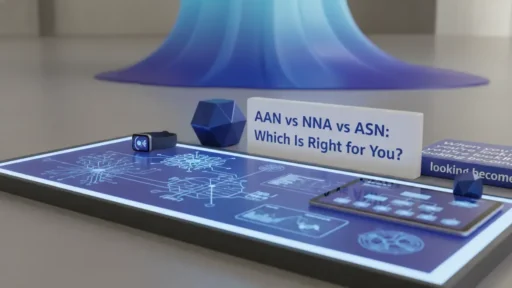Vehicle ownership is a complex ecosystem, particularly the process of changing the title. The vehicle title power of attorney is an essential instrument that easily accomplishes a variety of tasks and makes sure that transactions are carried out efficiently. A power of attorney is a legal instrument that authorizes a person to act on behalf of another, thus simplifying the selling of motor vehicles, processing of registration and other related tasks.
Being aware of the consequences of a power of attorney in the broader scope of vehicle titles can help to save time and reduce stress. Whether you are buying or selling a car, faced with the death of a loved one, or even dealing with other estate matters, knowing how to utilize this legal instrument the right way is necessary. This article analyzes the importance of power of attorney for vehicle titles, thereby revealing its benefits and practical applications.
Understanding Power Of Attorney Vehicle Title
A power of attorney for vehicle titles is a legal instrument by which one person authorizes another person in his behalf to intervene and transact business in regard to the vehicle. For example, this includes the activities of buying, selling, and titling automobiles.
Definition Of Power Of Attorney
The power of attorney is a legal document that gives full power and authority to a person, who is a representative or an attorney-in-fact, to perform all acts in respect of the principal’s finance,
health and matters as if the person was present …matters-as if-the-person-were-present-physically./>decisions and complete tasks on the person’s behalf, also known as the principal. In the situation of auto titles, the power of attorney bestows the agent the right to handle title transfers, registration, and other proceedings the principal does not need to be directly involved in. This form has to be specifically linked to car issues to carry on the purpose for which it is written and to be lawful.
Importance In Vehicle Ownership
Power of attorney is a critical issue in the ownership of a vehicle for a variety of reasons:
- Simplifies Transactions: A power of attorney speeds up the sale and purchase of cars by allowing the agent to take the place of the principal, who does not need to be present.
- Facilitates Estate Management: When dealing with estate cases that involve car distribution, a power of attorney would make the agent in charge of asset control and thus without any delays in the process.
- Addresses Illness or Absence: In the event that the car owner is incapacitated or away, a power of attorney permit the agent to handle the vehicle-related tasks in a very straightforward manner.
- Reduces Legal Complications: The use of a power of attorney helps to avoid any possible misunderstandings regarding the transfer of title and thus avoids any disputes. This will guarantee that the agent who is authorized to do so in fact, has the necessary permission.
Familiarizing oneself with the procedure of power of attorney for vehicle titles will no doubt lead to a better and more effective management of the car ownership and the car sales and thus higher satisfaction.
When To Use Power Of Attorney For Vehicle Title
Using a power of attorney for vehicle title transfers can standardize a wide range of ownership situations, and some cases fit the best description for these legal documents.
Buying A Vehicle
In the venture of purchasing a vehicle, it usually happens that there are multiple participants and the paperwork is quite cumbersome. A power of attorney authorizes the agent to close the deal and at the same time, guarantees that the process of transferring the title is seamless. The agent can, without the main person’s presence, sign the necessary paperwork, submit forms to the Department of Motor Vehicles (DMV), and pay the fees. In case of purchasing a vehicle from a seller that is located far away or from a different state, a power of attorney is an instrument which through an authorized person can handle the purchase in an easy process.
Selling A Vehicle
As it is said that, “to every complexity, the solution is a composition,” vehicle selling is multifaceted as the seller’s signatures are required in a variety of forms unless everything is in good conditions. A power of attorney has not only the ability to sign the title but to also bring the deal to completion if the real owner is either unreachable or out of town. This would be especially helpful if the seller was away, or incapacitated. Moreover, the agent might take part in the registration transfer and make sure that all the requirements are satisfied, thus making it easy for both the buyer and seller. In such cases, installing the power of attorney is very much necessary, as the time and speed become the main concern of the struggle which improves its certainty to the highest level.
Legal Requirements For Power Of Attorney Vehicle Title
Having a good understanding of the legal requirements for a power of attorney with respect to vehicle titles is essential not only for complying with state laws but also for simplifying the whole process of transactions. The requirements and the necessary documents differ from one state to another.
State-Specific Laws
Laws that are specific to a particular state govern the validity and the formalities of a power of attorney in connection with vehicle titles. Each state has a distinct set of rules legislating who could act as an agent, the shape of the form, and the necessity of witnessing or notarization respectively. For example, some states may mandate the presence of a notary public to authenticate the document; whereas, in other states, the signature of witnesses may be acceptable. Thus, people should be aware of the local statutes so that they can be sure of being in compliance with these standards and that there will be no problems when the transfers take place.
Documentation Needed
To effect a power of attorney for vehicle titles, special documentation is usually necessary. The main documents required can be:
- Completed Power of Attorney Form: A form that is divided into sections and is signed by the principal to allow the agent to
- Identification: Official identification of both the principal and the agent, normally used for notarization.
- Vehicle Title: The existing certificate of the title that has to change hands for the transaction to be legal and the person-to whom-the vehicle
- Bill of Sale: In case it is relevant, a bill of sale can be the document accompanying the title ownership change and detailing the sale transaction.
Having all documents that are both accurate and accessible is beneficial for the title transfer process and complying with the law.
Potential Risks And Considerations
Acquiring comprehensive knowledge about the power of attorney for vehicle titles risks that can be potentially encountered is vital for the proper and efficient execution of the transaction. There are a number of the most important ones to be thought of.
Fraud Prevention
Despite the fact that the occurrence of fraud is still a major security issue, where the execution of power of attorney is concerned. The agent standing in the principal’s shoes has the right to decide by themselves, thus the possibility of misuse of it. So, in practice, the introduction of manageable protectional measures is a key strategy in dealing with these risks. The setting of clear performance limits within the POA document, and the regular supervision of the representative’s conduct are among them. The assignment of a person whom you can trust as an agent is not the least of the preventive measures. The examination of their background or their references can additionally lead to the decrease in the likelihood of deception occurring.
Revoking Power Of Attorney
Revocation is not a spontaneous matter, and thus, it involves a full understanding and open means of discussing it. The person who issues the power of attorney by virtue of a legal process (a sound mind and present consciousness) is the only individual who is empowered for the revocation of the POA at will and not anyone else. The official revocation of the authorization and the notification of the agent are the first basic steps that the principal should carry out along with the institutions that participated in the process of the vehicle titles. The receipt of the revocation to and the updating by the relevant authorities of the new POA are the other further necessary actions that can also make the whole title transitioning process reputable.
Discover the Power of BlueNotary:
Integrate your Business, Title Company, or Law Firm to Satisfy your Customers and Decrease Turnaround
Get a document Notarized/Sign-up
Join the Free Notary Training Facebook Group
Conclusion
Having good knowledge of a power of attorney for vehicle titles is in the best interest of every person who takes part in the selling or buying of vehicles. This legal mechanism opens the door to easy and personalized organizational control, thus facilitating and fostering good governance and empowerment by providing security and stability for ownership management. Through the process of authorizing an agent, individuals can accomplish the buying and selling deals effortlessly, even from a distance. It is a must to follow the regulations that are provided by the state to guarantee the POA’s effectiveness. The act of adding layers of protection can become imperative in the face of potential misappropriation. In the end, a decisive power of attorney is a powerful way of creating an orderly system that emphasizes the quickness and safety of vehicle title management.
Frequently Asked Questions
What is a Power of Attorney (POA) for vehicle titles?
Power of Attorney (POA) for vehicle titles is a legal document that authorizes one person (the agent) to represent another (the principal) and perform tasks related to the vehicle, such as title and registration transfer. The representation allows both parties to carry on the business without the presence of the principal and most of all, it simplifies things in the process of the latter’s absence.
When should I use a POA for vehicle title transfers?
A Power of Attorney (POA) must be in use for vehicle title transfers when the principal cannot attend the event due to being far away, sick or out of the town. It gives the agent the power to conclude sales and clear up paperwork without the presence of the principal.
What are the forms required for writing a Power of Attorney (POA) for vehicle titles?
Look at the typical case when you want to write a Vehicle Title POA; a copy of the completed POA, the identification of the principal and agent, the present car title, and a bill of sale (or a re-sale contract) if necessary. Be sure to have all documents legal to meet the required conditions.
Are there any dangers of using a POA for vehicle titles?
Yes, of course, there are risks, such as the agent taking over a lot of power and, as a result, the possibility of someone else committing a fraud. Monitoring the agent’s actions and setting the limits of the power in the POA document can be a great help in overcoming these problems.
What should be followed to cancel a POA for vehicle titles?
The principal should prepare a written revocation of the Power of Attorney and must be of sound mind to do so. This is important to inform the agent and other relevant institutions to ensure the power is terminated properly.







